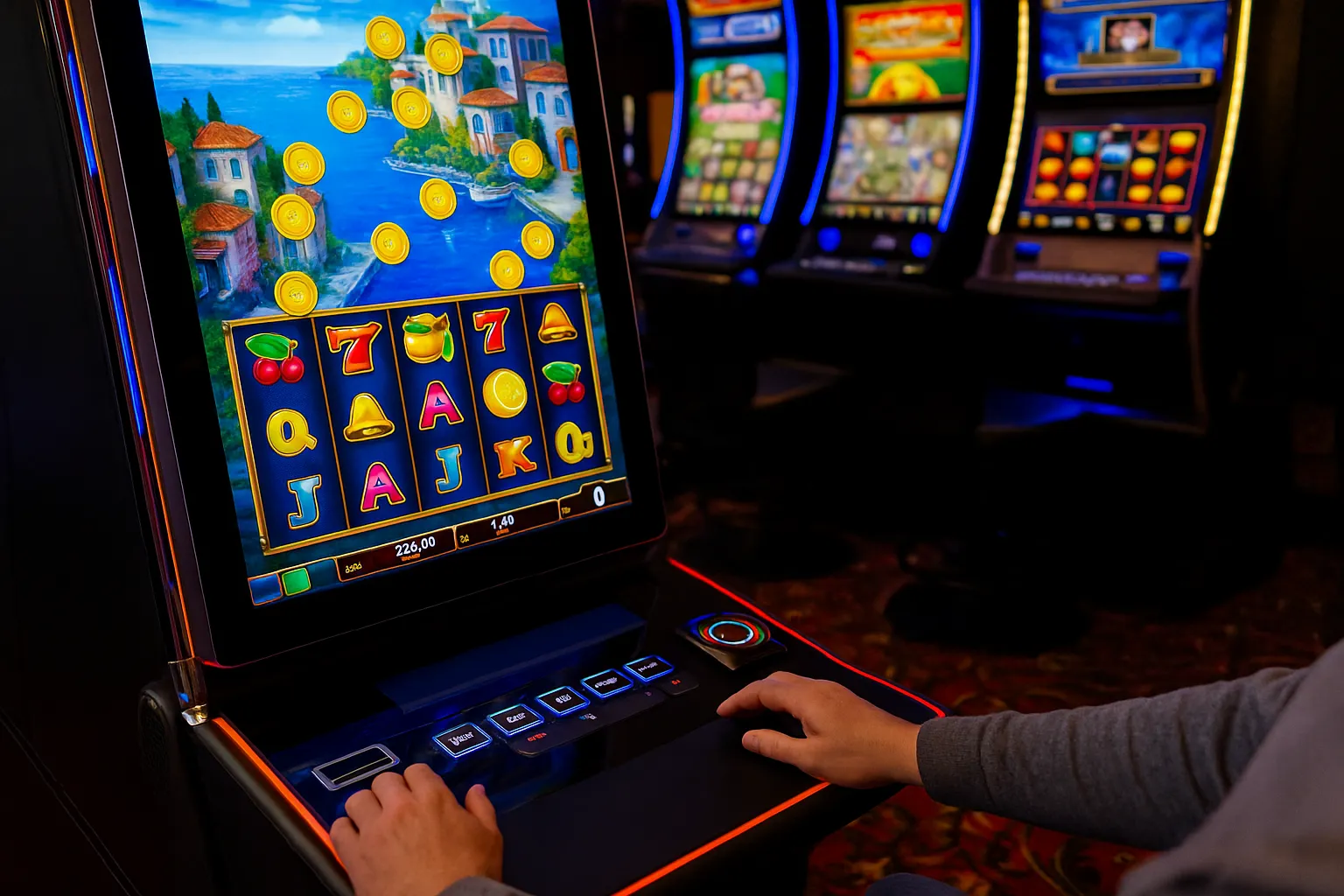Slot machines have long been the cornerstone of casinos, both online and offline. For decades, their appeal rested on chance: spin the reels, hope for a winning combination, and maybe walk away richer. But in recent years, the rise of skill-based slots has started to shift this dynamic. By blending elements of traditional slot play with skill-based mechanics drawn from video games, these machines are redefining what it means to gamble. The big question is whether skill-based slots are just a passing trend or if they’re changing gambling forever.
The Evolution of Slots
Classic slot machines have always been simple. Pull a lever, watch the reels spin, and let chance decide the outcome. Online versions replicated this model, albeit with more flashy graphics and creative themes. The attraction was straightforward: players didn’t need any experience or strategy.
Skill-based slots, however, add another dimension. Instead of relying solely on random number generators (RNGs), they incorporate mini-games, interactive features, or decision-making tasks that can influence the outcome. This hybrid format makes slot machines more engaging, particularly for younger audiences raised on video games.
The shift reflects a broader cultural change. People today want more control and interactivity in their entertainment. Passive play is losing ground to experiences that demand skill, attention, and strategy.
How Skill-Based Slots Work
Skill-based slots are not entirely free from chance. RNGs still determine much of the gameplay, ensuring fairness and unpredictability. But during certain stages, players can actively influence outcomes.
For example, a bonus round might involve shooting targets, solving puzzles, or navigating through an arcade-style mini-game. The better a player performs, the higher their potential payout. This system blends the excitement of chance with the satisfaction of skill, appealing to those who want to feel like their actions truly matter.
In many ways, these slots borrow from the psychology of video games. Achievements, levels, and rewards create a sense of progress, encouraging players to stay engaged longer.
Why Casinos Are Embracing Skill-Based Slots
Casinos recognize that traditional slot machines, while profitable, don’t appeal to everyone—especially younger generations. Millennials and Gen Z grew up with interactive digital entertainment, not passive one-button gameplay.
By offering skill-based options, casinos hope to attract this demographic. Just as online casino fast withdrawal platforms appeal to modern players by offering faster, more transparent services, skill-based slots meet the demand for interactive, personalized experiences.
From a business perspective, skill-based slots also extend playtime. Players often return to practice their skills, improve their performance, and chase higher payouts. This combination of challenge and reward creates a stickier product for casinos.
The Debate Around Fairness
Despite their appeal, skill-based slots raise questions about fairness. If skilled players consistently outperform less experienced ones, does this create an uneven playing field? Traditional slots are inherently fair because every player has the same chance of winning. Skill-based games introduce a competitive element that could disadvantage some.
To counter this, regulators often require that skill-based slots still rely heavily on RNGs. While skill can enhance payouts in bonus rounds, the base game remains largely luck-driven. This balance ensures that casinos maintain profitability while giving players the sense of control they crave.
The Social Factor
Another way skill-based slots are reshaping gambling is through social interaction. Many of these games include multiplayer elements, leaderboards, or tournaments. This community aspect mirrors video gaming culture, where competition and collaboration are as important as winning.
In physical casinos, skill-based machines often create buzz on the gaming floor. Players gather to watch others attempt challenges, much like spectators cheering at an arcade. Online versions replicate this with global leaderboards and chat functions, turning gambling into a shared experience.
Are They Changing Gambling Forever?
The answer depends on how you define “forever.” Skill-based slots are unlikely to replace traditional machines entirely. Many players still prefer the simplicity and unpredictability of classic slots. However, they are expanding the market by drawing in audiences who might not otherwise gamble.
More importantly, they signal a shift in how gambling products are designed. The industry is moving away from purely luck-based entertainment toward hybrid models that incorporate skill, interactivity, and personalization. This reflects broader trends across gaming, where engagement and player agency are key.
The Future of Skill-Based Gambling
Looking ahead, we can expect skill-based slots to become more sophisticated. Virtual reality (VR) and augmented reality (AR) could bring immersive challenges where players use real-world actions to influence outcomes. Artificial intelligence may personalize challenges based on player behavior, tailoring the difficulty and rewards to individual skill levels.
We may also see the rise of cross-platform experiences, where players can practice skill-based mini-games on their mobile devices before trying them in casinos. This creates new revenue streams and strengthens player loyalty.
Ultimately, the long-term success of skill-based slots will depend on balance. They must remain accessible to casual players while rewarding those who invest time in improving their skills. If they can maintain this equilibrium, they will continue to reshape gambling for years to come.
Final Thoughts
Skill-based slots are more than just a gimmick. They represent a fundamental evolution in gambling, combining chance with interactivity to create a new kind of experience. While they won’t eliminate traditional slots, they will coexist alongside them, catering to a new generation of players who want more control, challenge, and entertainment from their gambling.
Are they changing gambling forever? In some ways, yes. By blending skill and chance, they’re rewriting the rules of engagement, making gambling less about blind luck and more about participation. For players, this means more excitement, more variety, and a deeper sense of involvement in every spin.










